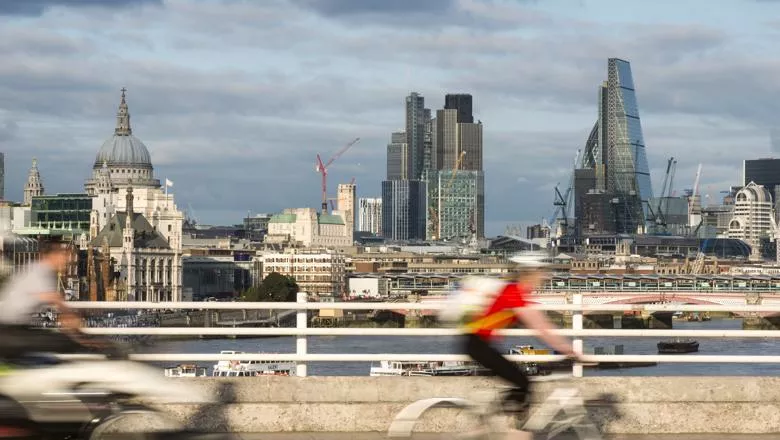The Data Dive demonstrated the skill and enthusiasm of the students participating in the event, drawing real insights into the future of urban mobility in London, New York and elsewhere. In collaboration with our supportive public and private sector partners, what they managed to achieve in only a week was remarkable and a good showcase for the benefits of urban informatics.
Dr Simon Miles, CUSP London Director
31 March 2021
Looking towards the future of urban mobility
Participants at the 2021 CUSP London Data Dive presented insightful solutions to transport challenges faced by urban centres such as London.

Hosted online, the Centre for Urban Science and Progress (CUSP) London’s 2021 Data Dive was attended by over 70 postgraduate participants from across King’s College London, University College London, the University of Warwick and New York University. With a focus on ‘the future of urban mobility’, participants worked together to analyse data sets and provide partner organisations with recommendations to inform their work in ‘micro-mobility’ (such as push bikes and electric scooters), active travel, and rail travel.
‘Best Overall’ prize, granted to the team which generated the most interesting insights, was awarded to Zhenxiao Fei, Yuxi Liu, Zhengzi Zhou, Huixin Liu, Zeqiang Fang, Lingwei Zheng and Le Shen. The prize was awarded for the team’s proposal which addressed how street infrastructure to support cycling has changed in London, and what this might suggest for future support for cycling in the city in future.
The ‘Best Technical’ prize was awarded to Yuhan Zhou, Yuying (Carol) Wu, Patricia Illacanchi, Jingge Li, Sihan Chen and Zhengtao Yu, for the sophistication and appropriate application of methods used to address how use of micro-mobility is changing over time in different towns across the UK.
The week-long event was supported by Transport for London, Westminster Council, WSP, RunFriendly and Tranquilcity, in addition to CUSP London partners including Reed Mobility, Ginger Town and Chordant. Other challenges addressed by participants included:
- What is the potential for micro-mobility and e-bikes to transform urban mobility in UK cities?
- How has COVID-19 impacted rail demand across London and on the routes into London, and how might demand evolve in future?
- Will future commuter travel in London be more or less active?
- What transport-related initiatives have international cities taken to make themselves ready for the future of urban mobility, and how do we compare between them?
- What are the best ways to improve air quality in London through transport changes?
- How has London driving behaviour changed from the past to post-COVID?
- How has New York driving behaviour changed from the past to post-COVID?
Participants shared their reflections on the event:
It has been brilliant to witness the CUSP London Data Dive 2021, which has been centred on solving real and relevant problems in the urban future mobility space. The process has facilitated rapid team formation and collaboration with effective problem solving through urban analytics on post-COVID travel behaviour, micro-mobility and air quality.
Toby Thornton, Technical Director, Future Mobility (WSP)
The Data Dive was a great opportunity to hear from industry around how data fits into London’s future mobility.
Raph Canty, King’s College London MSc Urban Informatics Student
Had a blast coaching some of the people and teams in this year’s CUSP London Data Dive. Really cool to see what they produced in just a few short days and happy to meet some awesome new people and gain insights into amazing datasets.
Jasper Snel, BISS and Maastro, CUSP London Alumni
